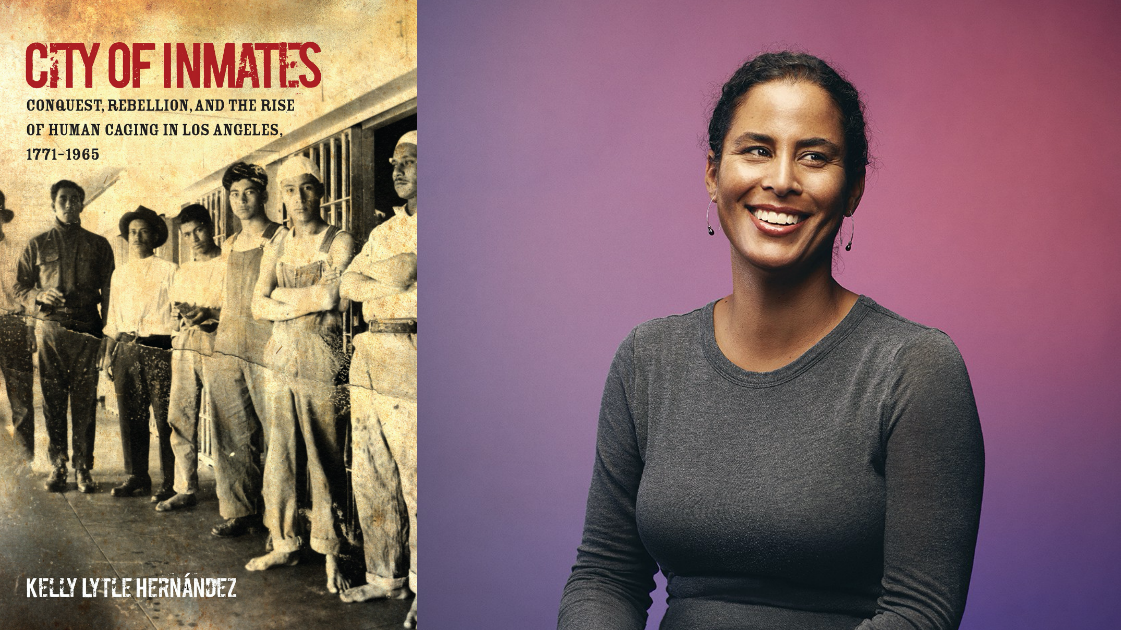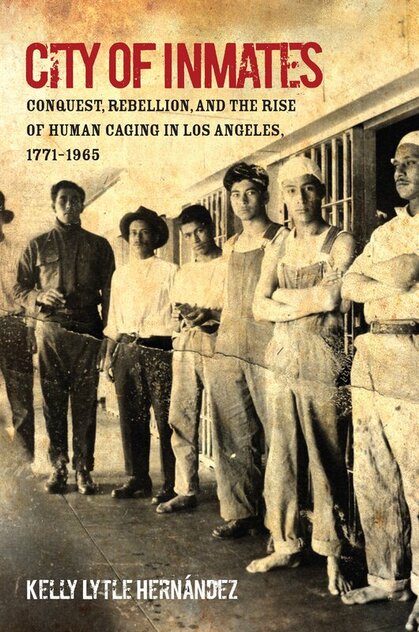City of Inmates: Conquest, Rebellion, and the Rise of Human Caging in Los Angeles, 1771-1965
Kelly Lytle Hernandez
|
UCLA history and African American studies professor and Mac Arthur fellow Kelly Lytle Hernandez’s City of Inmates is a phenomenal book on Los Angeles’s ugly history of incarceration spanning two centuries. In this path-breaking study, the author investigates the carceral history of Angelenos from the city’s inception in 1781. The city itself has been populated by diverse inhabitants, all of whom have been targeted populations at particular historical junctures. Lytle Hernandez shows how Los Angeles has become the “carceral capital of the world” that has been shaped by a longstanding history of settler colonialism. Beginning with the exclusion of Tongva-Gabrielinos in the early 19th century, colonists set out to build a “new, permanent racially reproductive and racially exclusive society.” That model has continued from the 1820s to the present. Laws banning vagrancy and public drunkenness combined to reduce Indigenous populations. Jailed Gabrielinos were routinely auctioned to white Angelenos, resulting in several decades of forced servitude. Later, the Geary Act resulted in netting Chinese residents who were required to officially register their presence in the city. A final chapter implicates the LAPD in the fatal shootings and brutalization of Black men from the late 1920s-1950s. |
Two insightful chapters illuminate Mexican/Mexican American experiences from the 1900s-1930s. Revolutionary Mexican journalist Ricardo Flores Magon agitated against Porfirio Diaz and was eventually imprisoned in LA under the Neutrality Act with the aid of the Mexican government. It is a fascinating chapter on the intersection of politics, censorship, and imprisonment. The author lays bare the caging of undocumented immigrants in a penetrating chapter on Mexicans in the 1920s-30s. In sum, this outstanding book is a testament to the longstanding carceral history of BIPOC in Los Angeles. It is a painful reminder of the way that jails have historically served as a tool of excluding, erasing, and purging targeted populations from urban landscapes.
Kelly Lytle Hernandez is a professor of history, African American studies, and urban planning at UCLA where she is the Director of the Ralph J. Bunche Center for African American Studies. She was the recipient of a MacArthur Fellowship in 2019. She is the director of the Million Dollar Hood project, which maps the financial and human costs of incarceration in Los Angeles County.
City of Inmates: Conquest, Rebellion, and the Rise of Human Caging in Los Angeles, 1771-1965 is publication by The University of North Carolina. Click here to purchase.
Kelly Lytle Hernandez is a professor of history, African American studies, and urban planning at UCLA where she is the Director of the Ralph J. Bunche Center for African American Studies. She was the recipient of a MacArthur Fellowship in 2019. She is the director of the Million Dollar Hood project, which maps the financial and human costs of incarceration in Los Angeles County.
City of Inmates: Conquest, Rebellion, and the Rise of Human Caging in Los Angeles, 1771-1965 is publication by The University of North Carolina. Click here to purchase.
|
Comment Box is loading comments...
|
|









